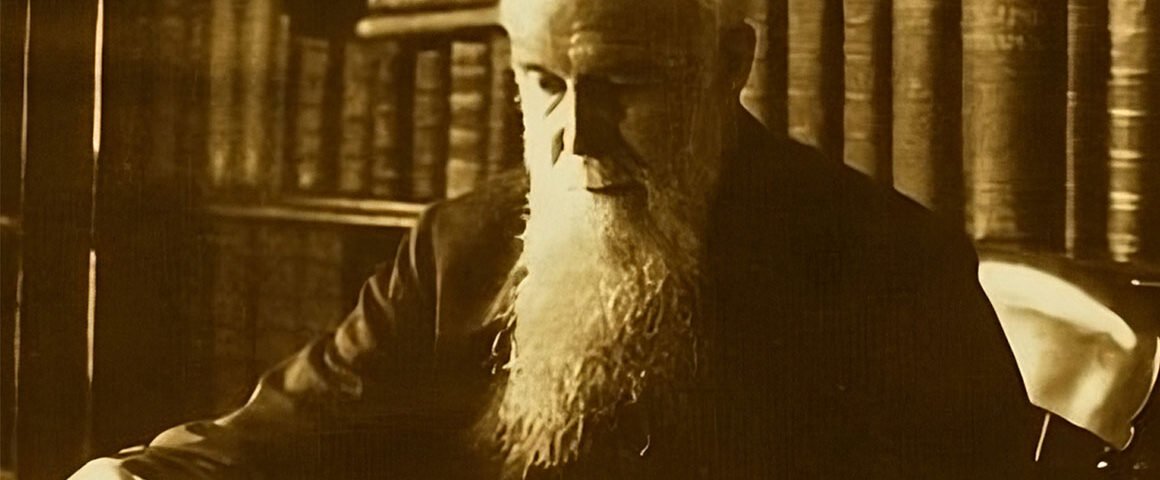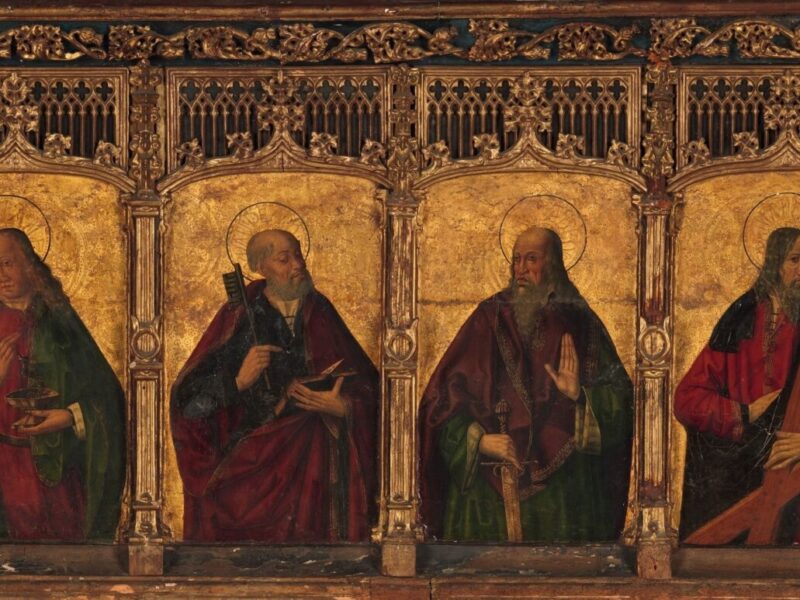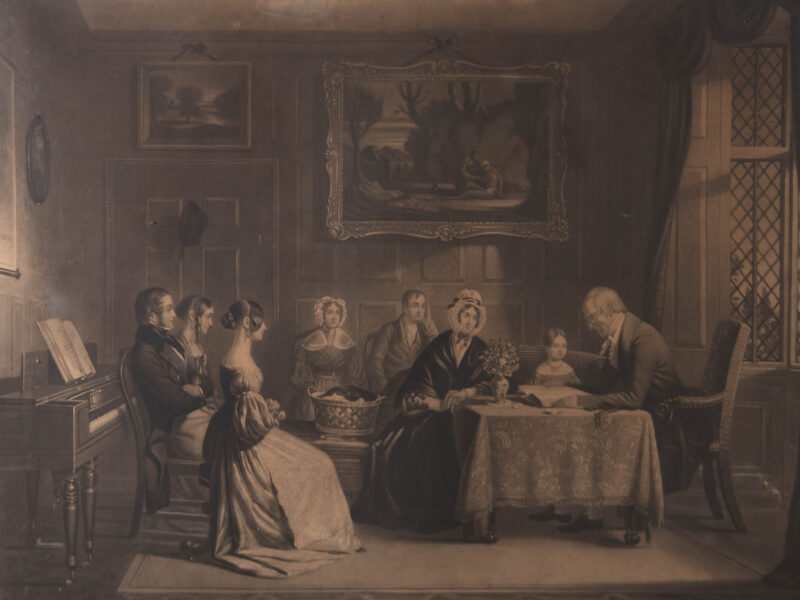For by grace you have been saved through faith. And this is not your own doing; it is the gift of God, not a result of works, so that no one may boast.
Ephesians 2:8-9
~
The Reformation’s predominant principle was grace. Paul’s emphasis on the importance of grace in salvation influenced Luther’s and Calvin’s views on the role of sola gratia.
Adhering to the teachings of “by grace alone” lifts a burden on mankind, realizing they can never earn salvation. The customary teaching of the Reformation underscored faith and not works. Grace relates to assurance, a tenet many struggle with. J.C. Ryle (1816-1900) argued, “All God’s children have faith: not all have assurance. I think this ought never to be forgotten.”[1]
Naturally, this discussion becomes complicated as sin enters the conversation. To be saved solely by grace does not imply consent to openly live in sin. Paul addresses this in Romans 6:
What shall we say then? Are we to continue in sin that grace may abound? By no means! How can we who died to sin still live in it? Romans 6:1-2
Further studies in James, 1 John, and 2 John solidify the fact that repentance is necessary for a believer’s life, bearing the fruit of the Holy Spirit. Walking daily with the Lord plays a role in sanctification, trusting in Him, and denying the ways of the flesh.
Genuine faith in Jesus Christ not only changes the mind of a Christian but also adjusts the priorities of their lives. Many people doubt their salvation, which alone proves the stain of sin in humanity; this is the devil’s work and validation that believers must grab onto the idea of assurance. J.C. Ryle wrote:
David lost assurance for many months by falling into transgression. Peter lost it when he denied his Lord. Each found it again, undoubtedly, not till after bitter tears. Spiritual darkness comes on horseback and goes away on foot. It is upon us before we know that it is coming.[2]
Knowing that David and Peter dealt with doubt and sin provides assurance, encouragement, and correction in Christians’ lives. Here, two significant biblical figures endured the same spiritual attacks and uncertainty many do today. Though, they persevered and finished the path to the Celestial City. This was not a result of works but genuine faith. A comprehension of their later years is essential, which validates their change in heart and commitment to the Lord.
Every individual is unique and molded differently. Struggles are inevitable, and Christians must maintain assurance to combat spiritual darkness.
Ryle wrote, “And so also a man may be a babe in Christ’s family; think as a babe, speak as a babe, and though saved, never enjoy a lively hope, or know the real privileges of his inheritance.”[3] Later, commenting, “By grace, we are saved, not by works of righteousness, through faith, without the deeds of the law. But I never would have any believer for a moment forget that our SENSE of salvation depends on the manner of our living.”[4]
John Rodgers (1930-2022) supported Ryle’s position, “Faith involves repentance. To repent is to turn from sin. Faith is to turn toward Christ for His forgiveness and eternal life… To turn to Christ is necessarily to turn away from sin at the same time.”[5]
Though determining the roles and connections of grace, assurance, and darkness in a believer’s life may seem complicated, the aim should be on Jesus Christ. The Lord provides salvation, redeems souls, and rescues them from doubt. It is Jesus who will change the heart, promising (John 14:15-18) never to abandon the faithful.
Finally, it is fair to say that assurance might be a prevalent issue for those who adhere to Reformed theology or Calvin’s teachings. Similar to Calvin and the early Reformers, this may be a result of the significance placed on God and not man in salvation. Sin displeases God, and as mere sinful creatures, humans naturally experience a continuous reality of their condition and of how far they are removed from righteousness. If allowed and viewed appropriately, a doubt of assurance can lead to an admiration of the Lord, humbleness, and surrendering to the Lord and His will. Perhaps the idea of assurance can play a role in the sanctification process, calling attention to grace, a hatred of sin, and the perseverance of the saved.
Thanks be to God that the simple mind can understand Scripture through the indwelling of the Holy Spirit.





'J.C. Ryle on Assurance' has 1 comment
May 14, 2024 @ 8:04 am Gerry T. Neal
*J.C. Ryle (1816-1900) argued, “All God’s children have faith: not all have assurance. I think this ought never to be forgotten.”*
Dr. Luther would have said that Bishop Ryle contradicted himself here. So would have John Calvin. More importantly, so would the writer of the epistle to the Hebrews (St. Paul) and its author, i.e., God. For Hebrews 11:1 says that faith is assurance. Dr. Luther followed the epistle of Hebrews in teaching that faith is assurance and this remains official Lutheran doctrine to this day. John Calvin followed God writing through St. Paul and Dr. Luther in this (in, among other places, Institutes of the Christian Religion, Book III, Chapter 2, seventh paragraph). The Reformed tradition has not been as faithful to Calvin and the Bible as the Lutheran tradition has been to Dr. Luther and the Bible. Indeed, it pretty much went wrong the moment Calvin\’s body was laid in the grave and Beza, claiming his mantle, began espousing the blasphemous doctrine of supralapsarianism. Nowhere did the Calvinist tradition apostatize from Calvin more thoroughly than in England where the Puritans developed a doctrine of assurance so rooted in works that the P9pe looked on it with envy. Jesus Christ accomplished full salvation for the elect, they taught, but only for the elect, and to find out if you were one of the happy few you need to look for the evidence of regeneration in a life of good works. Having robbed themselves of Gospel assurance, this way, they became the gloomy sourpusses who well-deserved H. L. Mencken\’s scathing description of their outlook as the haunting fear that someone, somewhere, may be happy. Unable to find peace themselves, they were determined to keep anybody else from finding it as well, and in their quest to impose a system of rigid moralism on England that was so severe the Pharisees of old, had they risen from their graves to behold it, would have told them to lighten up, became regicides, revolutionaries, and tyrants and the inspiration of the then-future Jacobins and Bolsheviks. J. C. Ryle admired the Puritans. Such poor judgement ought to have disqualified him from being consecrated an Anglican bishop. It also probably explains why he disagrees with the book of Hebrews, Dr. Luther, and John Calvin on this point.
What he ought to have said is that all God\’s children have faith and having faith they have assurance. Then he could have added that in this transitory life the faith of the children of God is no more perfect than their works and so therefore, sadly, they will experience doubt, just as they experience sin. Faith can be regarded in both its subjective and its objective aspects and as a weakness or failing of faith doubt pertains to the subjective experience. The objective side of Christian faith, that upon which faith rests, the Gospel message of salvation fully accomplished and freely given in Jesus Christ, has no such defect. The way to deal with doubt is to refocus faith on the Gospel. God has given us the Gospel in two forms, Word and Sacrament. The tragedy of low churchmanship is that it it tends to both a) follow the Puritans in defecting from the Hebrews/Lutheran/original Calvinist simple view of faith as assurance in favour of a complex view of assurance as resting partially on works and b) downplay almost to the point of dismissal the Sacraments. J. C. Ryle wrote a rather nasty piece about Archbishop Laud in which he called the man\’s Christian faith into question. In Laud\’s famous account of his dialogue with the Jesuit \”Fisher\” he observed that many were the luminaries of the Roman Church who in their last testimonies committed themselves, not to their own efforts and works, but to the sole merits of Jesus Christ. Laud remarked about how much better it would be if the Roman Church allowed such men to live the same way they died, i.e., resting on the merits of Christ alone. It seems to me that Charles I\’s Archbishop of Canterbury grasped the point of the Reformation a lot better than the first Bishop of Liverpool.